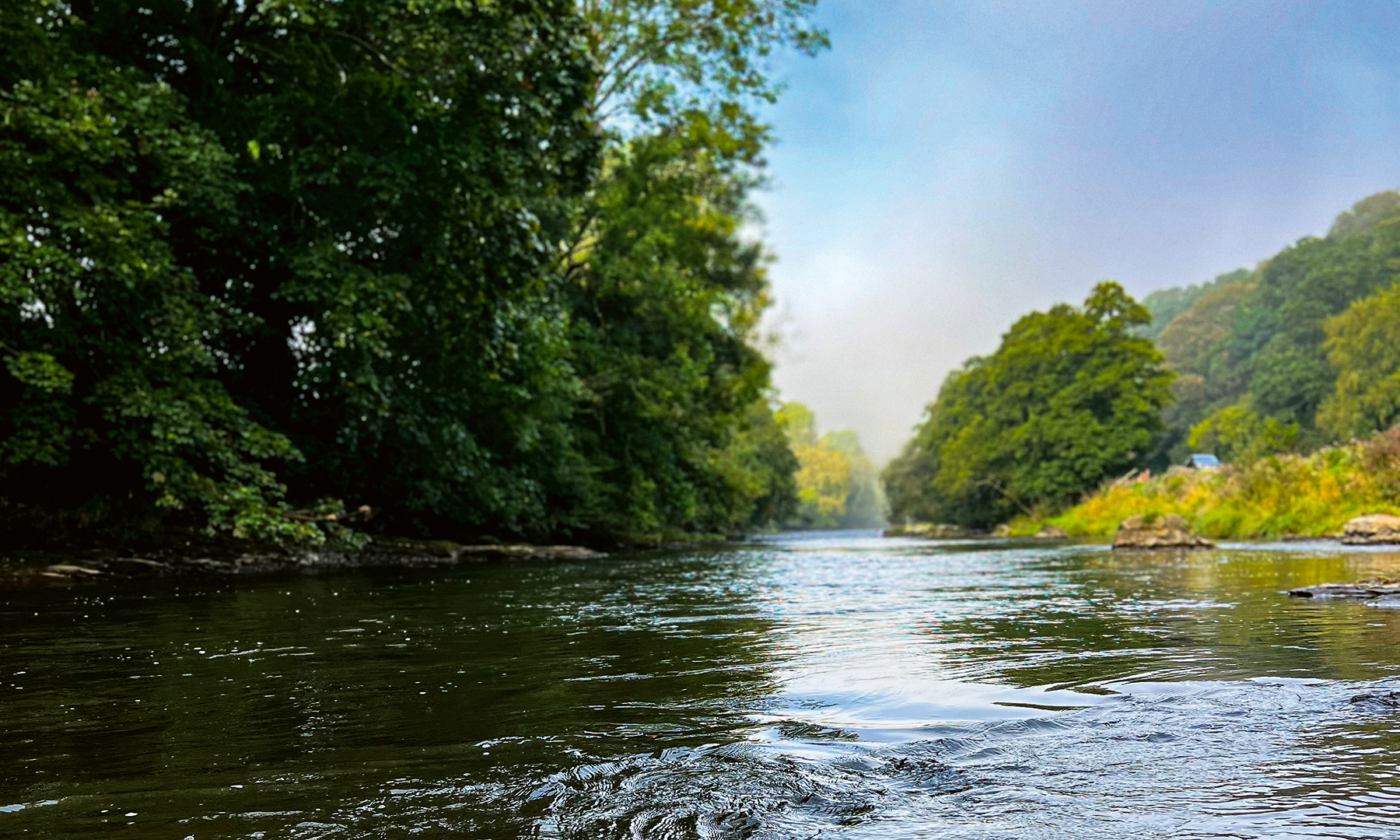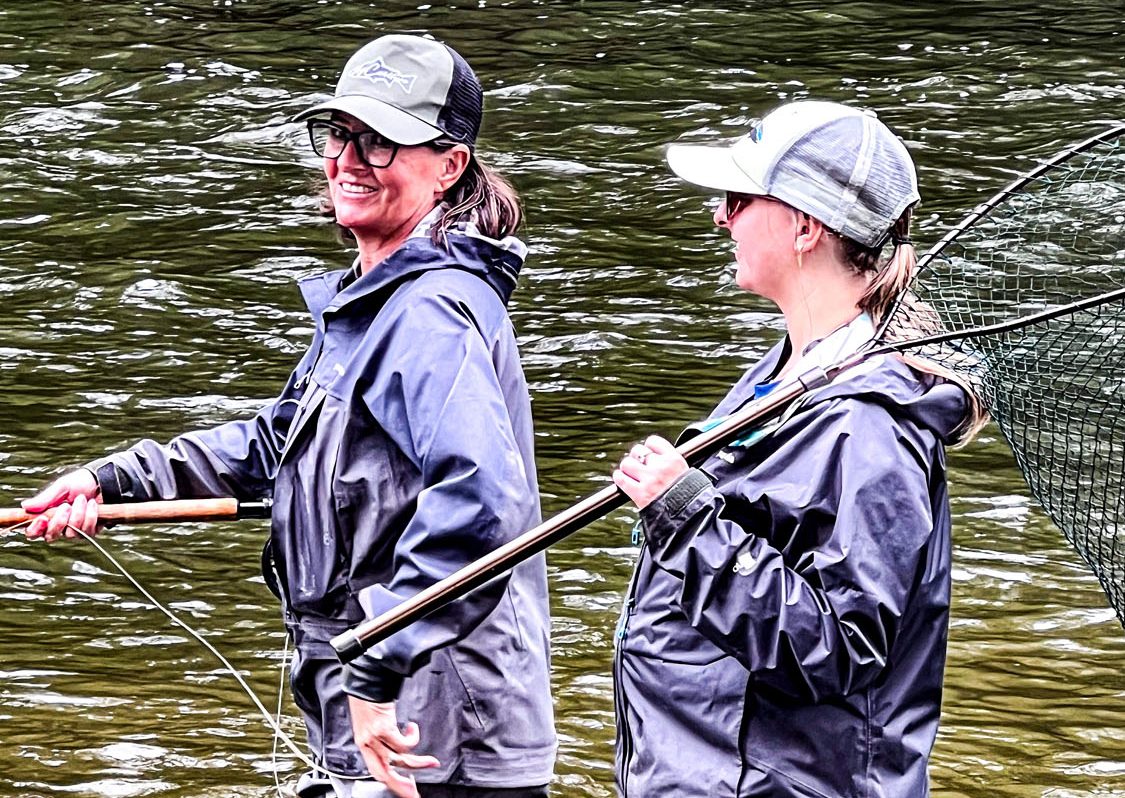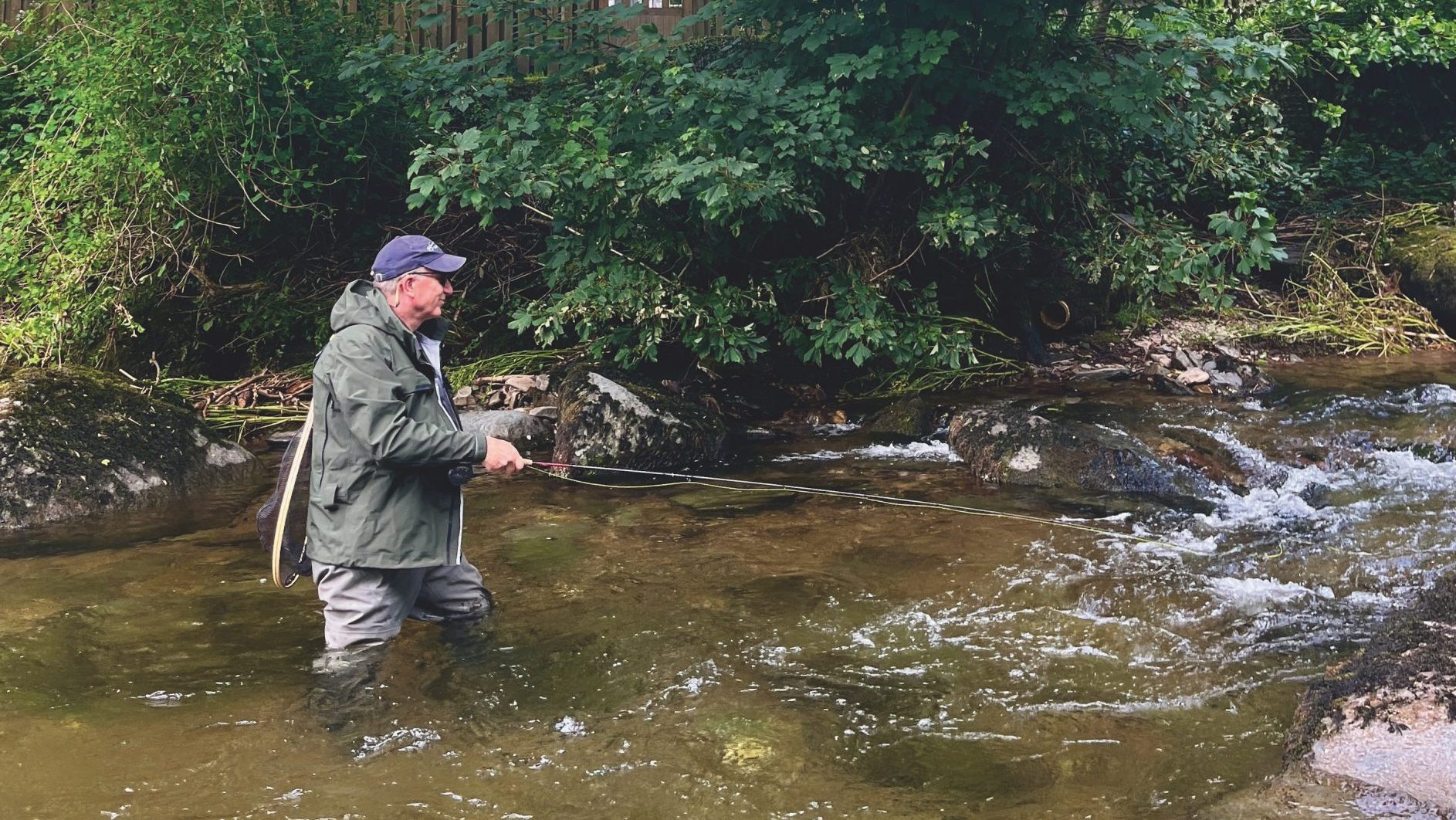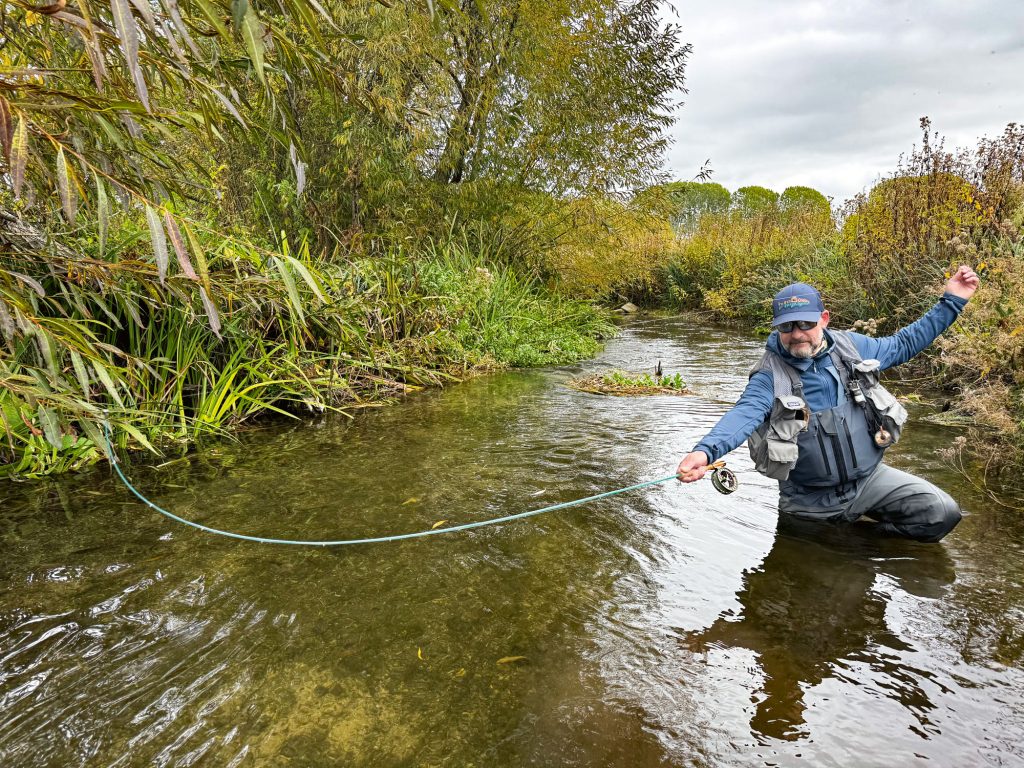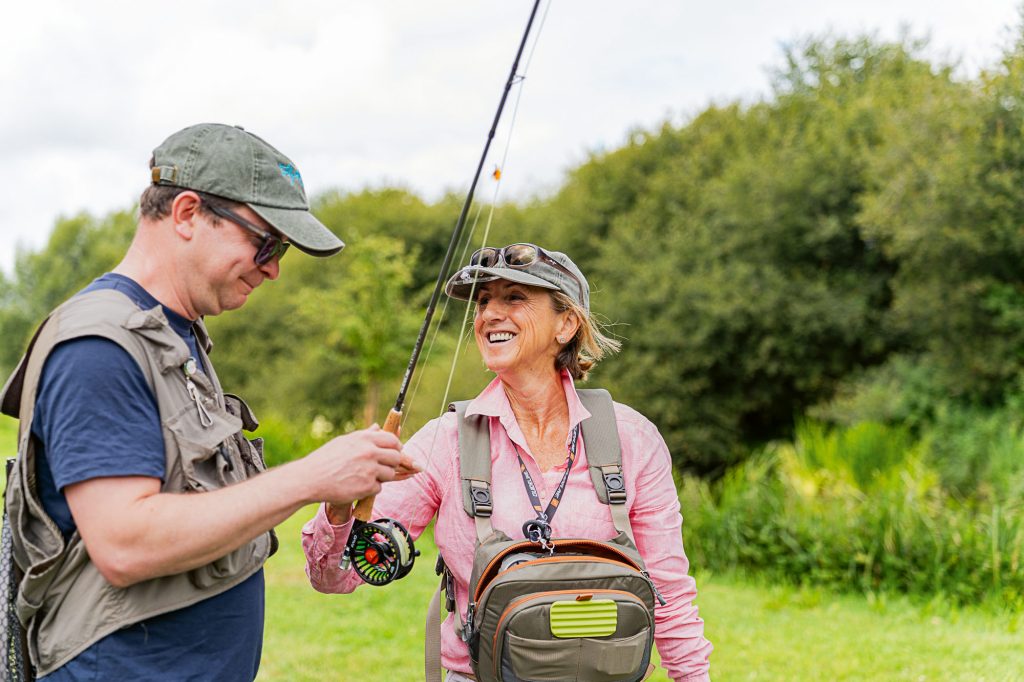★ Win a VALLON prize bundle worth almost £500! Enter here ★
More ways to cut the cost of buying tackle
Save money on fly fishing gear with expert tips on warranties, secondhand buys, adaptable tackle and smart shopping – plus advice on customs rules, forums and how to make your own kit
 Inside a well stocked fly fishing tackle shop
Inside a well stocked fly fishing tackle shop
Buying the right tackle first time has never felt so important. Years of inflation have cut deep while online shopping, although convenient, can be a minefield of poor product descriptions. Following our previous post, here are a few more ways to cut the cost of buying tackle.
The hole in your wallet
Buying waders is perhaps a fly-fisher’s biggest regular expense. One less-than-agile crossing of barbed wire is all it takes to cause misery. However the wrong fit is the most common cause of failure: too tight and seams are strained; too loose and creases abrade. Try before you buy. Expensive waders usually offer better fit options, but £80 nylon pairs are okay – you may sweat but they’re tough. Don’t be duped into thinking breathables are essential – it depends how often you fish.
Use online forums
You can often cut the cost of buying tackle by poring over a forum’s classified section. Members’ reputations are at stake so there’s a good chance their gear will be good. To add reassurance, the Salmon Fishing Forum insists a member must have made 100 quality posts before they can sell.
Even if you don’t buy from a forum, it’s a good place to seek advice. You can usually separate considered posters from ranters. It’s also a grapevine; posters revealing when and where shop sales are taking place, and when new products are in stock (eg “Frobisher’s have got some fresh herl” or “Got hold of some size 21 Salars at Smyth’s”).
Buy secondhand from shops
You may pay more from a shop than from a private seller, but it is easier to get your money back if the item is faulty. Shops must adhere strictly to the Sale of Goods Act – the product must be ‘fit for purpose’, whereas private sellers must just describe the product accurately.
Choose adaptable tackle
There is no need to buy separate reels for different lines. Cast-and-machined cassette reels are far better quality now than the weak cast cassette reels of 15 years ago. Most are supplied with three or four cassettes. Similarly, multi-tip lines have replaced the need for separate lines. On stillwaters, at a pinch, a set of coated leaders can allow you to fish at different depths rather than having to buy half-a-dozen lines of different density.
Multi-purpose tackle makes sense. If you’re buying a first stillwater rod, opt for an adaptable seven-weight (rather than a soft six or stiff eight): it can also be used for sea-trout, summer grilse and bass. A wading jacket can be used on rivers and stillwaters, whereas a full-length jacket is restrictive on rivers.
Buying goods from overseas
Are exchange rates making you think about buying tackle cheaply abroad and bringing it back to the UK? You need to do your sums.
You don’t pay VAT or Customs Duty on goods you bring into the UK for personal use up to the personal allowance of £390. Beyond that you must declare the items either online or to Customs on your arrival. You may not need to pay any Customs Duty on goods bought in the EU if they meet criteria regarding value and manufacture. You will need evidence of purchase.
Find out more at gov.uk. Also read Ebay’s guidance.
Know your rights
Buy goods with warranties. But read the small print. Warranties apply to original owners. Some have a time limit. Most exclude wear and tear. Most include a handling charge for repairs, plus shipping return costs. Some offer replacement tackle while you wait for the repair. Some companies retain the mandrels, around which rod blanks are rolled, and may still be able to repair obsolete models for a price.
Use a credit card on purchases over £100: you will have greater rights for a refund if goods are faulty under the Consumer Credit Act Section 75.

Make do and mend to cut the cost of buying tackle
Often the best way to cut the cost of buying tackle is to avoid buying full stop: you can save money by creating your own tackle. Old mint tins can become fly-boxes. Notched squares of cardboard become leader winders. Personal creations can be more satisfying than shop-bought alternatives.
Spend time looking after kit. We’ve all dumped tackle after a long wet day and rediscovered its mouldy remains a few weeks later. Make the effort to remove rods from wet bags and scrub the cork; clean and oil reels; and hang waders to dry. Don’t delay in using Aquasure to repair minor holes in waders.
Bulk up
Be ambitious – if you know what sort of fishing you plan to do. Shops will offer better prices on fly-tying materials bought in large quantities: capes and hanks rather than hackles and strands; 100 rather than 10 hooks; 100m spools rather than 50m.
Help charities and clubs
The Wild Trout Trust, Wildfish and the Atlantic Salmon Trust have regular auctions that sometimes include tackle. Local clubs sometimes host auctions, too. Inevitably, old fishers fade away, leaving tackle behind. Families often donate inherited tackle to clubs to sell. If your club doesn’t have an annual tackle sale, why not suggest it?
Take a lesson
Finding impartial advice is difficult. Many guides and gillies have allegiances to brands and tackle shops and with it access to discounted tackle. Opt for a full-time guide: you can tell the better ones by looking at how often they post on their websites and Facebook pages. However, a good instructor will not fish with sub-standard kit so ask them what they use. Having taught you, they will know best what tackle you may need.
Discover more money-saving tips here. If you have some great buying advice, we’d like to hear from you. Write to Trout & Salmon at troutandsalmon@twsgroup.com

